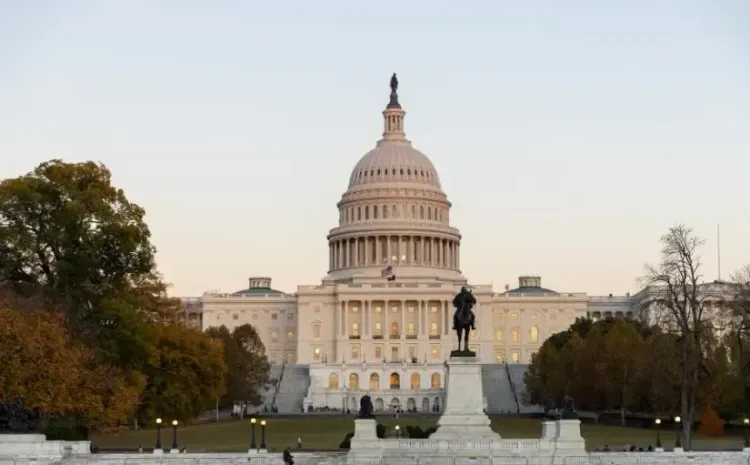Could the US Government Shutdown Be Coming to an End?

Synopsis
Key Takeaways
- The US Senate has passed a bipartisan bill to end the federal government shutdown.
- The legislation includes funding for federal agencies through January.
- Federal employees affected by the shutdown will receive back pay.
- Healthcare subsidies will be addressed in upcoming votes.
- The shutdown has disrupted essential services, including air travel.
Washington, Nov 10 (NationPress) The US Senate has successfully passed a bipartisan bill aimed at putting an end to the 40-day federal government shutdown, sending the proposed legislation to the House of Representatives for review.
This bill is designed to fund the majority of federal agencies through January and ensure back pay for federal employees impacted by the shutdown.
The compromise was reached over the weekend by Democratic Senators Jeanne Shaheen and Maggie Hassan from New Hampshire, working alongside Senate Republican Majority Leader John Thune and representatives from the White House.
Notably, at least eight Senate Democrats defied their party by supporting this measure, which enabled it to pass with 60 votes, despite opposition from Senate Democratic leader Chuck Schumer of New York, who raised concerns about ongoing healthcare issues, including subsidies under the Affordable Care Act.
This legislation also aims to reverse the firings of federal employees that occurred during the shutdown initiated by US President Donald Trump. Additionally, it guarantees food stamp funding through fiscal year 2026, providing stability for low-income families who depend on government assistance.
Senate Republican leaders are committed to conducting a vote on legislation concerning expiring enhanced healthcare subsidies by the second week of December. House and Senate Republican leaders are expected to engage in negotiations with Democrats on that topic once the government resumes operations.
The shutdown has severely disrupted federal operations across the nation, impacting air travel significantly. Major US airlines have cut back on flights, and thousands of cancellations were reported on Sunday (local time).
The Federal Aviation Administration has mandated a 4 percent reduction in flights, compounded by staffing shortages in air traffic control, which raises concerns for travelers as the Thanksgiving holiday approaches.
The measure must now receive approval from the House of Representatives to take effect.
Remarkably, this government shutdown has become the longest in US history, affecting various programs, from national parks to federal research initiatives.
Negotiators remain optimistic that prompt action from the House will allow government services to resume swiftly, providing reassurance to federal employees and the general public and bringing an end to weeks of halted operations.









